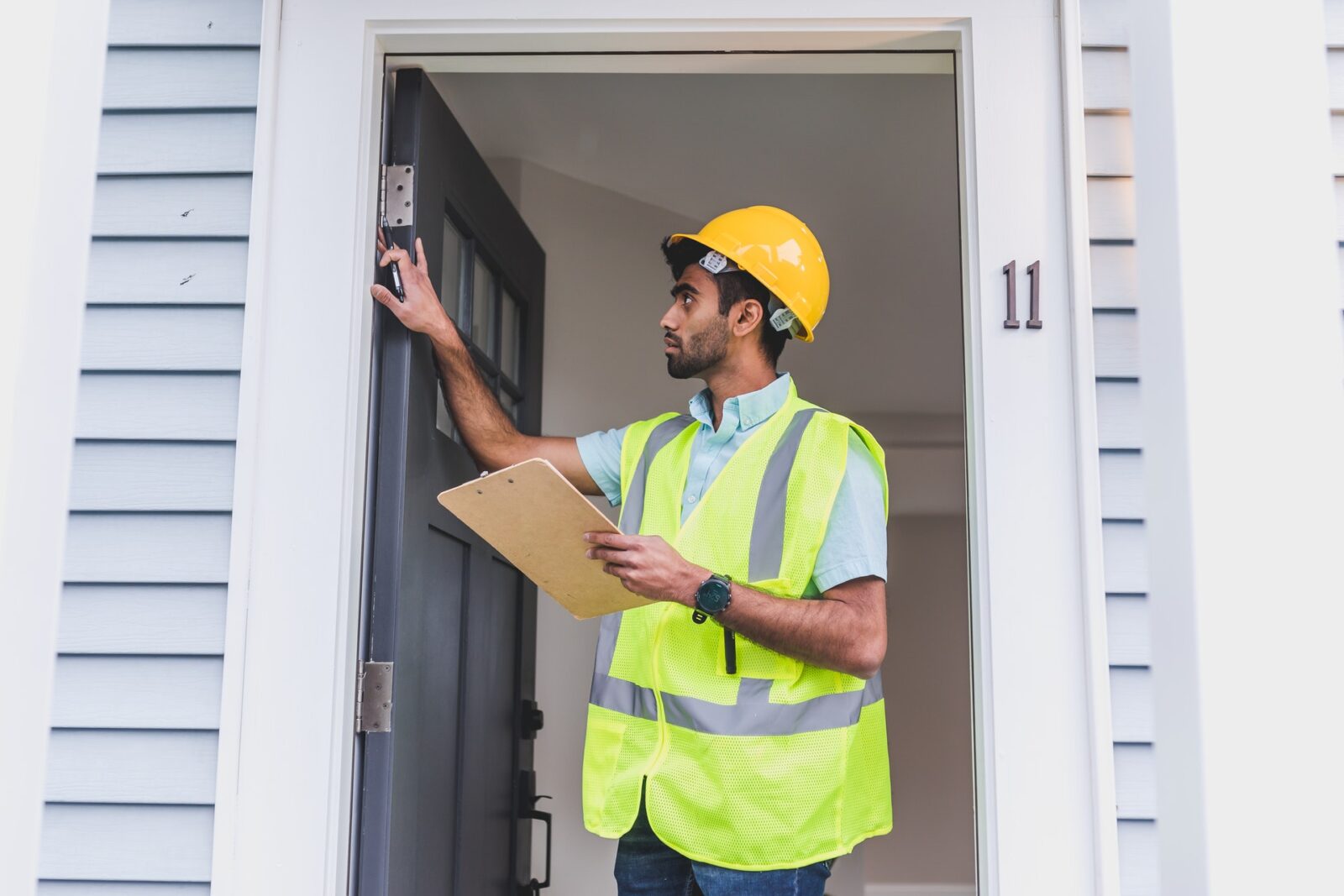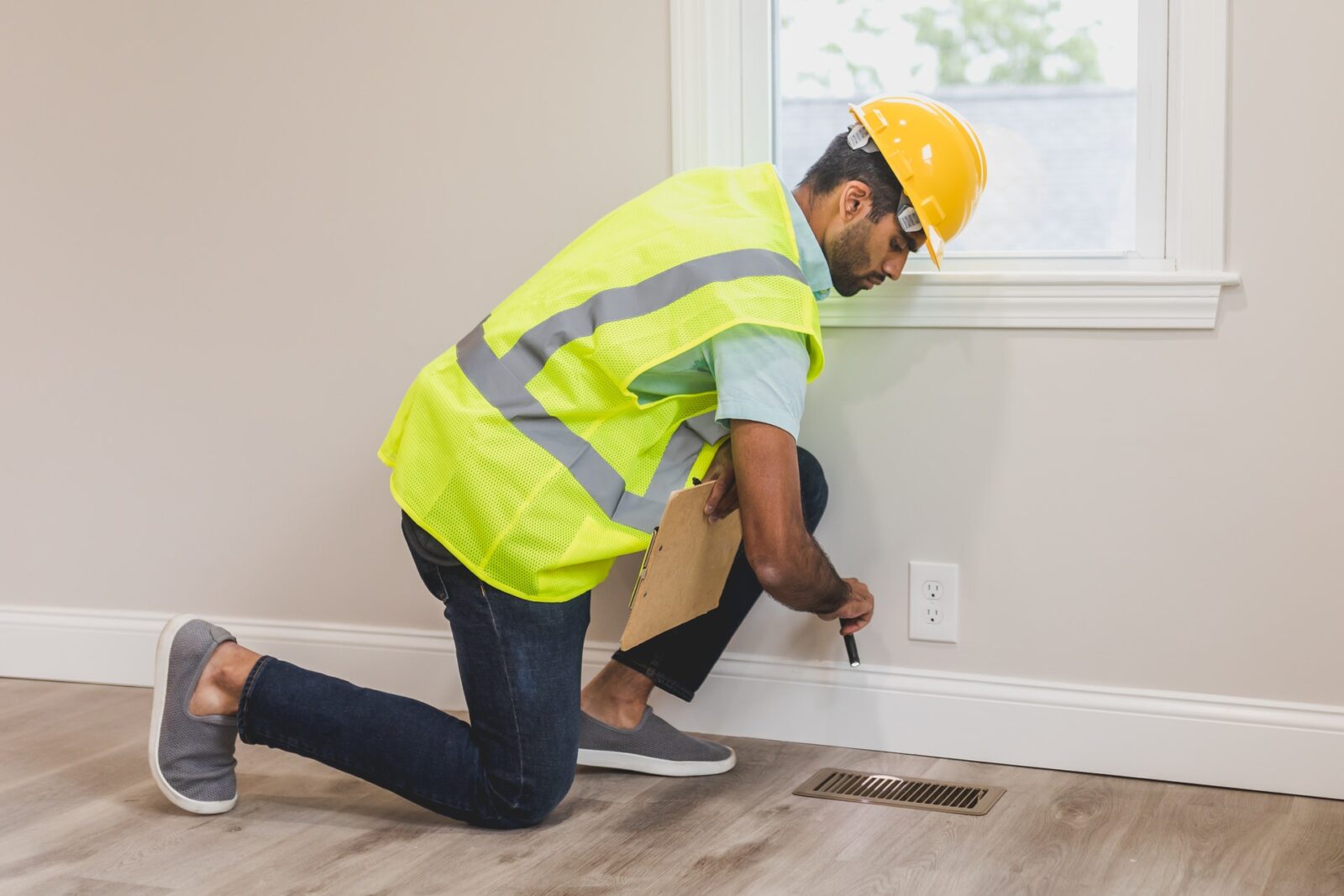
As a new real estate investor, it’s best to acquaint yourself with the terms inspection and appraisal because these are two vital prerequisites for a successful home buying process.
Every real estate transaction will have to go through the appraisal and home inspection process because it’s best to evaluate a property under consideration before signing a contract. Both an appraisal and inspection are often conducted to verify the compliance of the specified property.
The truth is, most buyers and sellers confuse an appraisal with an inspection with the belief that they’re the same thing. If you also hold such an assumption, you couldn’t be more wrong.
Simply put, a home inspection is for buyers while an appraisal is for lenders. A home inspection enables a buyer to assess the physical features of a property before its purchase through the services of a professional inspector.
On the other hand, a home appraisal is necessary to determine the property’s estimated value and ensure it’s marketable. While you might have an idea of the two concepts, keep reading to gain a better understanding of what inspection and appraisal mean, the difference between inspection and appraisal, and why you should know the terms appraisal and inspection as an potential real estate investor.
Table of Contents
What Is Inspection?
Property inspection is a vital step and prerequisite in every real estate transaction. It’s a pre-purchase activity conducted by an expert who takes a comprehensive look at the property under purchase to evaluate its physical condition, especially the mechanical systems, construction, and structure.
After evaluating the property, the home inspectors will give the buyer a detailed report regarding the physical and overall condition of the home’s structural integrity and components, such as the plumbing, electrical, exterior, air conditioning, insulation and ventilation, roofing, and home’s interior.
Typically, home inspections occur within ten days of a real estate purchase contract. After the inspection, appraisal follows immediately.
What You’ll Get From a Home Inspection
Arranging for a home inspection is part of the first things to do after signing a contract with the seller. However, in most low-inventory markets, it’s pertinent for buyers to hire a property inspector before making an offer.
Ensure you do your due diligence before hiring an inspector. Consider asking your real estate agent for recommendations, get referrals from family members or friends, or search online for reviews.
Seeing as the goal of an inspection is to get a detailed report of the home’s condition before its purchase, a property inspection takes at least three to four hours to finish. Unlike an appraiser who only conducts a visual check of the property, an inspector will examine and test the home’s vital systems and their functionality. The core areas they focus on include:
- Drainage
- HVAC system
- Appliances
- Water damage
- Mold infestation
- Foundation
- Roof condition
- Plumbing
- Crawl spaces
Nevertheless, a home inspection might not disclose all the potential issues in the property, particularly seasonal or hidden defects. As such, consider discussing any exclusions with the professional home inspector before and after a thorough inspection.

Who Attends the Inspection
The inspection isn’t a grand affair and requires only the agent and home buyer to attend. That way, the inspector can easily walk through every red flag while the buyer familiarizes themself with the home’s systems and how they work ahead of moving in.
What Happens After a Home Inspection
After the on-site inspection’s complete, your home inspector will give you a comprehensive written report highlighting their findings alongside photos taken during the event.
Note that your inspector might recommend some specialized assessments for you to consider during the inspection if they discover more profound defects in your property’s key systems during the standard check.
Some of the issues requiring special inspection may include:
- Lead paint
- Pests
- Radon
- Septic
What Is Appraisal?
An appraisal is a qualification assessment to determine the property’s service capability and review all performance standards before closing the deal.
A home appraisal determines the estimate of the value of the home rather than its physical condition. An assessment might involve a certified and qualified property inspector, but the goal is determining the home’s market value. The evaluation is conducted jointly by technical and financial officers to assess the proposal’s marketing, technical, and monetary aspects.
When the appraiser finds problems with a property, they might recommend hiring a licensed home inspector to conduct a thorough examination and investigate situations unclear to the appraisers.
Appraisal Process
The appraisal process entails a licensed appraiser evaluating the property and giving the buyer an estimate of its worth. While the lender chooses the appraiser, the closing cost includes their fee.
Depending on the property location and size, an appraisal costs about $400 or more. The appraisal process takes an hour to complete. After that, the appraiser will finish up the report at their office.
Appraisal entails the following:
Property Assessment
The appraiser starts by walking through the house, noting its condition, location, and finishing (a light inspection).
Comparable Sales Review
After the light inspection, the expert will use their findings to identify similar properties sold recently in the neighborhood to help them determine a fair market value.
Final Report
At this stage, the appraiser will provide a physical report about the home’s fair market value, including comparable sales descriptions and photos. Often, the buyer and lender receive the copies of the report. While the seller might request a copy, the appraiser isn’t obligated to share it with the seller.
Typically, the appraisal might be more than the agreed sales price, meaning the buyer is paying less than the current market value. In this scenario, the lender will quickly approve financing for the property.

What If You Get a Low Appraisal
Sometimes, an appraisal might not come in above the agreed-upon sale price to enable the mortgage company to approve your loan.
An appraisal that doesn’t reach the agreed-upon sales price is low and can jeopardize your ability to obtain the loan you have been pre-approved to get, which is a big problem.
Low appraisals occur due to the following reasons:
- An inexperienced appraiser
- Inadequate relevant comparables for determining the value of the home
- Property has multiple bids, driving up the price beyond market value
- Buying a property in the high season using comparables from the low seasons
If you get a low appraisal, consider doing the following:
Ask for a Price Reduction
Once you determine that the low appraisal is accurate and the property is worth less than you’re offering, the seller won’t be able to cheat you. Thus, rather than backing out completely, ask the seller for a price reduction and use the appraisal report as proof that the property is overpriced.
Pay the Difference
Ask the lender if you’re allowed to restructure your financing or opt to pay cash to the seller to fill the gap.
Contest the Appraisal
Suppose you aren’t too sure about the appraisal, contact your mortgage lender, point out glaring errors and issues in the appraisal report, and request a new assessment.
Difference Between Inspection and Appraisal
Home inspections is a helpful indicator when buying a property seeing as it helps the buyer determine the home’s physical condition before closing the property.
A property inspection offers the buyer a comprehensive physical evaluation of the home’s overall condition. On the other hand, an appraisal is a process used to determine the home’s estimated value and worth. Simply put, appraisals are unbiased written estimates of a home’s value.
Some of the primary differences between inspection and appraisal are:
Fees
A home inspection entails a comprehensive analysis of a property’s structural condition, and average home inspection costs between $300 to $350 depending on the home’s range.
If the property is above 2000 square feet the home inspection cost might be around $400 or above. On the other hand, the appraisal fee is between $300 to $500, and larger homes cost more to appraise.
Professional
Professional property inspectors or certified inspection companies with enough expertise and necessary certifications carry out home inspections.
As we mentioned earlier, a home inspector’s job is to provide a detailed report on the property’s overall condition. A professional property appraiser estimates the property’s value after inspecting the appraised property and its location as well recent economic trends.
Goal
Property inspection offers the buyer an evaluation of the home’s overall condition, including a detailed report on its physical condition, like mechanical components, construction, and house structure.
An appraisal’s goal is to assess the home’s market value and ensure the seller doesn’t attempt to sell the house at a higher price than it’s worth. On the other hand, the goal of an inspection is to provide the buyer with all necessary information to make an informed decision.

How Are Appraisals and Home Inspections Similar?
Despite requiring two different professional services and diverse processes, inspection and appraisal share some similarities, including:
Buyer Pays for Both
The buyer selects the inspector they wish to work with while most lenders pick the appraiser. However, the buyer handles both the appraisal and inspection cost unless otherwise negotiated.
Inspectors and Appraisers Are Licensed
Both inspectors and appraisers require extensive training and licenses. They also serve as third parties paid to provide professional services and offer expert opinions.
Both Allow for Negotiation
A home appraisal and inspection allows you to negotiate a better price if there are issues discovered during the inspection process or the appraisal report comes out low.
A low appraisal report allows you to renegotiate your offer and attempt to bridge the offer price and the appraised price gap. More so, it enables you to look for alternative financing options and loan structures or consider paying cash to supplement the amount the lender will provide.
Similarly, an inspection uncovering significant repairs will allow you to request credits and needed repairs or drop the deal without forfeiting your earnest money.
Both Occur During Escrow
A home inspection often occurs within the first week that your offer is accepted. That way, there’s time to work on any issues discovered during the process and contained in the inspection report. Armed with the inspection report, a buyer can effectively negotiate with the seller for a better price.
The appraisal happens during the escrow period, often one or two weeks before closing.
Reasons to Get An Inspection and Appraisal
While an appraisal comprises a home assessment, you shouldn’t ever use it to replace a home inspection. Seeing as an appraiser is more interested in finding a home’s value, an appraisal inspection is often different from one conducted by a professional inspector with a mission to discover issues and defects in the property.
A professional home inspector makes a detailed walk-through looking at every nook and cranny of the property. Conclusively, the inspection that occurs during the appraisal process isn’t as in-depth as a professional home inspection. Thus, as a potential homeowner, you might want to get an appraisal and a separate review for your own good.
If you’re wondering whether to get an inspection or appraisal first, we recommend getting a real estate inspection first. That way, if the home inspector discovers expensive repairs are needed and there are significant defects, the assessment won’t be necessary.
Simply put, going for an appraisal after inspection helps you save money and time.
Choosing the Right Inspector and Appraiser
While home inspections and real estate appraisals offer many benefits, it’s difficult to enjoy them if you’re working with the wrong inspectors and real estate appraisers. When hiring an inspector and appraiser, ask your friends, family members, and real estate agent recommendations.
Check out the recommended experts online, do your research on them and their companies, and don’t forget to check online reviews. It’s best to work with an insured, certified expert who won’t be easily influenced while carrying out their services.
Consider attending the home inspection to ensure you get a thorough walk-through, know more about the house, and ask the inspector relevant questions while walking through the home.
Summary
And that’s a wrap! If you’ve always wondered, “appraisal versus inspection: what’s the difference?” you have your answer. Simply put, while inspections are for buyers, appraisals are for lenders.
A home inspection offers a detailed report of a house’s physical condition to enable the buyer to make an informed purchase decision. That way, you discover what items need to be replaced or repaired through the unbiased report of the property’s physical evaluation.
On the other hand, a lender requests an appraisal to determine whether the house meets the federal housing administration (FHA) minimum property standards, discover the home’s estimated value, and the property’s marketability. So next time you see the question appraisal vs home inspection: what’s the difference? You already know the answer.

In her 25-year career, Steph Wilkinson has been involved in the acquisition, marketing and sales of over $3 Billion dollars of residential real estate. A number of years ago, Steph transitioned into Brokerage Leadership for National real estate brands and tech start-ups. She has served as a Business Strategist for real estate agents and brokerages alike and is also a real estate coach and trainer. In her new role with the Iconic Team, Steph will be responsible for the growth of the team and will be working with all of our agents to increase their productivity and bottom line.




